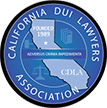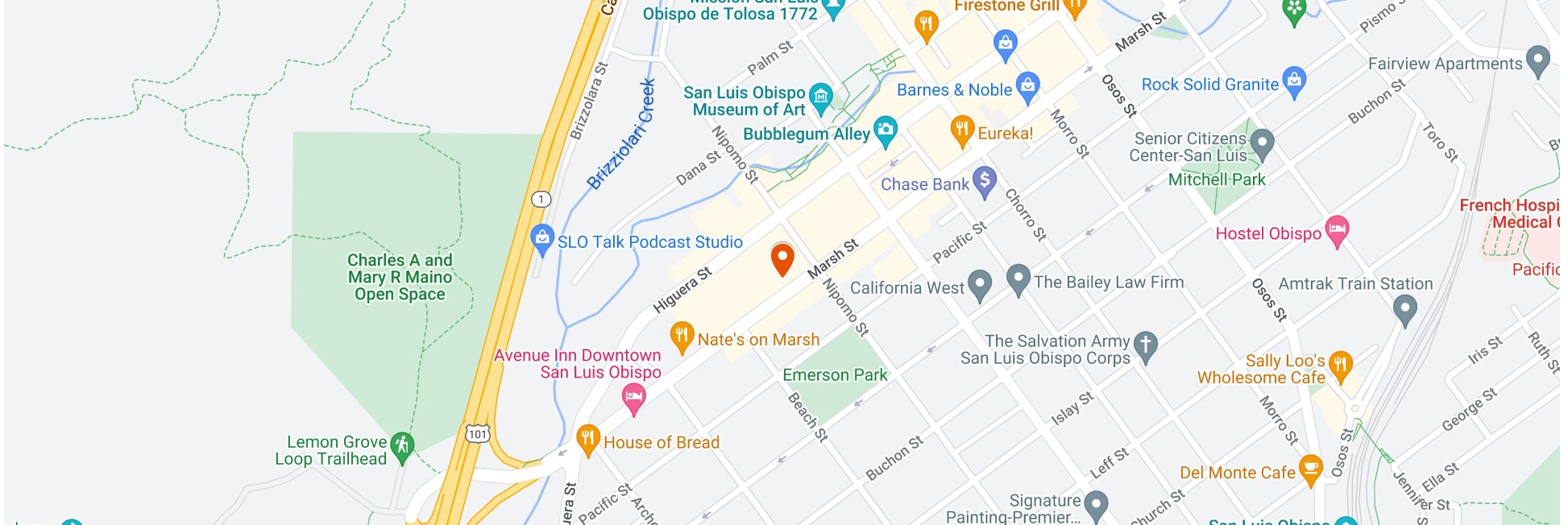FAQs
A DUI arrest in San Luis Obispo, California, could leave you with many conflicting questions and worries about what step to take next. You should understand your rights and the charges that could be brought against you by the prosecution. If you or your loved one face DUI charges, you want to seek an experienced DUI lawyer’s help. They could help with building defense and have your DUI charges dropped or dismissed.
At the San Luis Obispo DUI Attorneys, we assist you in understanding the circumstances surrounding your charges, building solid defense strategies, and increasing your chances of a favorable case outcome.
You will find answers to the frequently asked questions concerning DUI in this article. These frequently asked DUI questions can assist you in comprehending aspects of a DUI arrest, charges, possible repercussions, and how we could help you reduce the impact of your DUI charges.
How Does DUI Occur in California?
In California, you commit a DUI crime when you drive with a blood alcohol content (BAC) of 0.08% or more. California Vehicle Code 23152(b) states that if your BAC is at least 0.08%, you are considered too intoxicated to drive safely and must be taken off the road immediately and brought home by someone else who has not drunk themselves. However, if you choose to drive with a BAC that exceeds 0.08%, possible punishment includes jail time, fines, driver’s license suspension, or probation.
What is Considered a Felony DUI in California?
Felony DUI in California is a DUI charge that involves three situations, including:
1. Your DUI Offense Caused Bodily Harm Or Death To Someone Else
Prosecutors in California have three options for filing felony DUI charges when someone else sustains injuries or dies while you are:
- Drunk driving.
- Breaking another traffic law or driving carelessly. These options include:
- DUI second-degree murder, commonly known as a “Watson Murder.”
- Gross vehicular manslaughter while impaired, per California PC 191.5(a).
- Drunk driving causing serious injury, per California VC 23513.
Based on the circumstances surrounding your charges and criminal history, the prosecution could file one or more felonies.
2. You Have Three and Above Prior DUI Or “Wet Reckless” Convictions Within The Last Ten Years
Driving while intoxicated is considered a "priorable" violation in California. Each time you face conviction for a DUI or a DUI-related crime again, the penalties and sentences for the priorable offense increase.
In California, you could be charged with a felony DUI if you have three and above prior DUI sentences within a ten-year period and are arrested for another DUI. Prior crimes involve the following regarding drunk driving:
- A driving while intoxicated conviction in another state would be the same as a DUI in California.
- Facing a “wet reckless” conviction in California.
- Facing a DUI conviction in California.
3. You Have At Least One Prior Felony DUI Conviction
If you have at least one past felony drunk driving case and commit any DUI, including "simple" misdemeanor drunk driving without aggravating circumstances, you face a felony charge. This circumstance is likely to occur if you are convicted of DUI and your prior indictment:
- Resulted in property damage or someone else’s death and faced a felony charge.
- Faced a felony charge since you had multiple prior DUI convictions, even if your current DUI crime happened within the last ten years.
How Can I Expunge My DUI Record?
If you are arrested for a DUI and expect to be charged with a misdemeanor or felony, you want to hire a criminal defense attorney. Upon conviction, your criminal record comprises the sentence. Fortunately for you, you can have the conviction expunged from your record. This can happen if you hire an attorney who knows how to handle DUI cases in court.
- If convicted of a misdemeanor or felony in California, you could be eligible for expungement if you meet the following requirements:
- The court did not sentence you to state prison.
- You were sentenced to prison, but after Proposition 47's "realignment," you would have been sentenced to time in county jail instead.
- You completed probation.
Upon completing probation for a DUI conviction, you could ask the court to expunge your conviction record. The court reviews the petition to ascertain that you are eligible for an expungement. The judge grants your petition if:
- You enter a new "not guilty" plea after withdrawing your guilty or "nolo contendere" (no contest) plea.
- If a jury or a court finds you guilty after a trial, the judge vacates the judgment.
What Benefits Do I Enjoy After My DUI Expungement?
Your DUI conviction can be sealed through the legal process of expungement, meaning it won't appear on background checks. Expunging a DUI from your record has many advantages, including the following:
- A DUI expungement could lower the cost of your insurance. When you have a DUI conviction on your record, your insurer could raise their premiums. Having your DUI expunged may result in lower rates.
- Finding a job could be easier after expunging than when having a DUI conviction record. Due to employers' prevalence of background checks on job candidates, it may be challenging to find employment if you have a DUI on your record. If your DUI conviction is expunged from your record, it is simpler to land a job.
- Your driver's license is reinstated after your conviction expungement. Your license reinstatement is possible if your DUI conviction results in your license being suspended or revoked.
What is an SR-22 Insurance Document?
An SR-22 insurance document is a form your insurance company files with the Department of Motor Vehicles (DMV) as proof of your liability coverage. It could be necessary for you to file an SR-22 if:
- You are convicted of DUI in California.
- You are on probation for a DUI conviction.
If this applies to you or your car, you should purchase an "SR" coverage. An SR policy covers damage caused by any driver who does not have proper auto insurance; it doesn't matter whether they were driving legally or illegally when their vehicle collided with another vehicle or person. The DMV requires that you have an SR-22 for three to five years to prove that you are maintaining at least the bare minimum levels of insurance coverage.
What is the Difference Between a “Wet” and “Dry” Reckless Driving Charge?
- Wet Reckless
- Dry Reckless
In some DUI instances, a lesser charge known as "wet reckless" may be brought. When the prosecutor has insufficient evidence to indict the motorist of DUI, a wet reckless is brought. Still, there is proof that the driver was operating the car carelessly.
The prosecuting agency must show that you were operating a vehicle carelessly while knowing or should have known that your actions could cause harm or death to secure a conviction for wet reckless. The penalties for a wet reckless are less severe than those for a DUI because they are typically charged as misdemeanors. A wet reckless, however, will still add points to your record and could result in higher insurance costs.
Driving recklessly without alcohol is referred to as "dry reckless." Section 23103 of the California Vehicle Code states this is a misdemeanor reckless driving. Your knowledgeable DUI defense attorney may be able to persuade the prosecution to drop the charge to dry reckless in some DUI cases. You could receive a dry reckless conviction and be subject to probation, fines, and jail time. However, the fact that this charge is not "priorable" is a plus. If you are found guilty of this crime, a later DUI arrest won't count against you as a DUI.
What are Some Common Sentences for a DUI Charge?
Sentencing for a First Misdemeanor DUI Offense in California
The sentence for a first-time DUI depends on the number of prior convictions and the circumstances of your arrest. If you were arrested while driving with a blood alcohol level above 0.08 percent, you might be charged with a misdemeanor DUI. This offense is punishable by a $390 to $1,000 fine or up to six months in jail.
Sentencing for a Second Misdemeanor DUI Offense in California
If you were arrested while driving with a blood alcohol level above 0.08 percent and have one prior conviction within the last ten years, you could be charged with a misdemeanor DUI. This offense is punishable by fines from $390 to $1,000, a one-year maximum jail term, attending a DUI school, or summary probation of three to five years.
Sentencing for a Third Misdemeanor DUI Offense in California
A third DUI conviction within ten years is a misdemeanor in California. It carries sentencing including three to five years of misdemeanor probation, 120 days to a year in county jail, and penalties and penalty assessments ranging from $2,500 to $3,000.
What are the BAC Limits for Various DUI Charges?
The legal BAC limit for drivers over 21 is 0.08%. DUI charges are possible if you are stopped with a 0.08% BAC or greater. There are a few exceptions to this rule, though. If the officer feels that your driving ability has been compromised by alcohol and you are stopped driving with a BAC of 0.05% or higher but less than 0.08%, DUI charges may be brought against you.
The permitted BAC for commercial drivers is 0.04%. Additionally, the legal BAC limit for drivers under the age of 21 is 0.01%. If the officer feels that your ability to drive has been compromised by alcohol and you are found to be operating a vehicle with a BAC of 0.01% or higher but less than 0.08%, you may be charged with DUI. For drivers under 21, California also has a "zero tolerance" law. DUI charges may be brought against you if you are observed driving while your BAC is 0.01% or greater.
What is an Ignition Interlock Device?
An ignition interlock device (IID) is a breathalyzer installed in your car. It requires you to blow into it before starting your vehicle and warns you if you fail. IIDs are fitted in cars to stop drunk drivers from running the vehicle. IIDs must be fitted in the vehicle upon the court's order and are often needed for drivers who have been found guilty of DUI. IIDs are needed for anywhere between six months and three years.
Can I Refuse to Take a Breath or Blood Test?
You can refuse a breath or blood test, but this action can be considered a misdemeanor. If you choose not to submit, it will be assumed that you violated drinking and driving laws and that your license could be suspended for one year. If a police officer believes that there is probable cause that you have consumed alcohol and are driving, they could order an alcohol screening test of either the breath or urine sample.
However, if you refuse testing after being lawfully detained for DUI, even if no chemical test is administered during those proceedings, including before formal arrest, this refusal may result in criminal charges.
What Defenses are Available to Me If I am Charged With a DUI?
A DUI defense lawyer will assist you in building strong defense strategies to have your charges lowered or dismissed. Below are possible legal defenses to a DUI accusation:
The Field Sobriety Test Results Were Inaccurate
According to credible research, standardized field sobriety tests are only 60% to 70% accurate, and they could become completely invalid when administered to aged, disabled, or obese individuals. Therefore, if there are any doubts about the validity of the field sobriety tests, your DUI lawyer can challenge them.
The Arresting Officer Unlawfully Stopped You
A traffic officer must have a probable reason to stop your car. A law enforcer cannot pull over a car based on guesswork. As a result, you have a better chance of getting your case dismissed or having your charges reduced if you cannot present any valid, objective justifications for stopping.
The Alcohol Breath Test Was Inaccurate
Breathalyzers check the amount of alcohol in your breath and blood. This method of measuring alcohol levels in the blood can produce unreliable results. Mainly, variations in human physiology can produce varying BAC findings. Additionally, the breathalyzer has a 10% margin of error by design, which might produce deceptively high readings.
With these two pieces of information, your defense counsel might find breath testing problems that might result in a convincing argument against the prosecution's evidence when working with a forensic toxicology expert.
The Arresting Officer Denied You Right To Legal Counsel
Everyone has the right to speak with a lawyer while a criminal inquiry is ongoing. This right is crucial in a DUI investigation because it allows for collecting independent and acquittal-supporting evidence during a crucial investigation period. Therefore, your case may be dismissed if your right to counsel is refused.
According to the justification for depriving you of the right to counsel, your attorney will submit a motion to dismiss or suppress any defense-related evidence. If the court learns that the evidence used against you was based on your lack of legal representation, your charges will be dropped.
Do I Need a DUI Attorney for My Case?
Yes, you should have a DUI attorney. A lawyer can represent you in court and negotiate with the prosecutor for a lesser charge. An experienced DUI lawyer will know how to navigate the legal system and get your charges reduced or dropped altogether.
A reasonable defense attorney can also help you with any related offenses that may arise during the case, for instance, causing property damage while driving under the influence of drugs (DUID), which can be highly complicated if left behind by yourself.
What’s in a DUI Police Report?
The police report that details your arrest and the charges brought against you must include all pertinent and necessary information if stopped for driving while intoxicated. The prosecuting attorney begins their investigation of your case with the police reports.
Knowing the details of your DUI police report could be helpful as you enter into talks for a plea bargain or start developing your defense plan. The details that are normally included in a DUI police report include the following:
- Pertinent facts or specifics relating to your stop or arrest
- The name and badge number of the arresting officer
- Information about the outcomes of your field sobriety test
- Your breathalyzer test findings or those of other chemical blood alcohol tests
- How the police determined that you were under the influence of drugs or alcohol at the time of the stop
- The reason why law enforcement agents decided to stop you
What Can Happen If I Go to Court for a DUI Without a Lawyer?
A DUI court appearance can be very intimidating. Without a lawyer, appearing in court for a DUI can weaken your case, and consequences could include the loss of your driving privileges and a higher likelihood of serving jail time. Additionally, you can be subject to a bigger fine than it would be if you hired a lawyer.
Having a lawyer on your side does not ensure that the repercussions of a DUI will be less severe. Working with a lawyer, however, can help you safeguard your liberties and ensure that your rights are upheld as the court hears your case. You could expect many things if you engage with a public defender rather than a private DUI attorney.
You Could Face Harsher Sentencing
A private DUI attorney might fight for you more vigorously than a public defender. Public defenders frequently handle a lot of cases at once. Despite their best efforts on behalf of their clients, they might not have the time or resources to devote to every instance.
Public defenders are frequently overburdened and, in certain instances, may not even have the opportunity to conduct the necessary research or make the required efforts to maximize outcomes for their clients. As a result, you might not obtain the appropriate results for your situation.
These harsh sentencing could include:
- Prison/ Jail Term
- Hefty Fines
- Longer License Suspension
Jail time is occasionally a consequence of a DUI. Prison time interferes with your right to privacy. While incarcerated, you cannot work, resulting in a reduction in income. In addition, serving time in jail results in the complete loss of employment, necessitating the need to look for new jobs after being released. Having a DUI on your record can make it harder to find a job. An individual DUI lawyer can try to reduce the repercussions as much as possible.
Along with jail time and other punishments, DUI frequently entails fines. If you appear in court without a DUI attorney, you could be subject to more severe fines and penalties for a conviction. These fines may take money away from other things you would like to buy or make it challenging to manage your finances while paying them.
Depending on how many prior convictions you may have and your blood alcohol content (BAC) at the time of the event, you may lose your license after being found guilty of a DUI for a long time, which is sometimes many months or years. In some circumstances, you may be eligible to apply for a provisional license, which would grant you limited driving privileges, such as the ability to drive with a breathalyzer in your car, just during work hours, or occasionally to carry a child.
A private DUI lawyer can work to reduce the length of your license suspension and improve your chances of receiving a provisional license during that time.
You Could Appear At Each Court Appearance Alone
A private DUI attorney may occasionally represent you in court, particularly during routine sessions. On the other hand, if you work with a public defender, you can be obliged to personally attend those court hearings. As you manage your case, that may result in time missed at work and additional disruptions in your personal life.
You Cannot Enjoy the Specialized Training Necessary To Handle DUI Charges
You can handle these charges with the help of attorneys who focus on managing DUI matters because they have a specialized understanding of this area. They frequently thoroughly understand the law that public defenders do not. You may negotiate these accusations more skillfully and lessen the potential consequences of a conviction with the assistance of a lawyer who is well-versed in the local DUI laws and regulations.
Find a Reputable DUI Lawyer Near Me
If arrested for a DUI and have questions about your case, you want to seek the help of a DUI attorney. At San Luis Obispo DUI Attorneys, we are here to answer any questions you might have about the DUI process and how it works in California. We can also help with other types of legal issues that involve drinking or driving. Call us today at 805-321-1000 for a case review and advice on possible defenses.
Get Personalized Defense For Your DUI Case
Get the Representation You Deserve!






Practice Areas
- Aggravated DUI
- Blood Split Motions
- Blood Alcohol Concentration
- Commercial DUI
- DUI Causing Injury
- DUI Hit and Run
- DUI Murder/Watson Murder
- DUI and Military Member
- Driving Under the Influence of Drugs
- First Offense DUI
- Second Offense DUI
- Third Offense DUI
- Fourth Offense DUI/Felony DUI
- Non-immigrant Visa DUI
- Vehicular Manslaugther While Intoxicated
Disclaimer: Your use of this website does not establish an attorney-client relationship between you and our attorneys. The information and materials contained on this website are provided for informational purposes only and does not constitute legal advice. While the information contained on this website is believed to be accurate, it is not guaranteed to be correct, complete, or up-to-date and you should not act or rely upon any information or materials on this website without seeking the advice of an attorney licensed to practice in your jurisdiction. Attorney Advertising. This website is designed for general information only. This is an advertising platform.
Mobile information will not be shared, sold, or conveyed to third parties for marketing/promotional purposes.
Copyright © 2022 San Luis Obispo DUI Attorneys - All Rights Reserved Privacy Policy - Terms of Use
Copyright © 2022 San Luis Obispo DUI Attorneys - All Rights Reserved
Privacy Policy - Terms of Use

